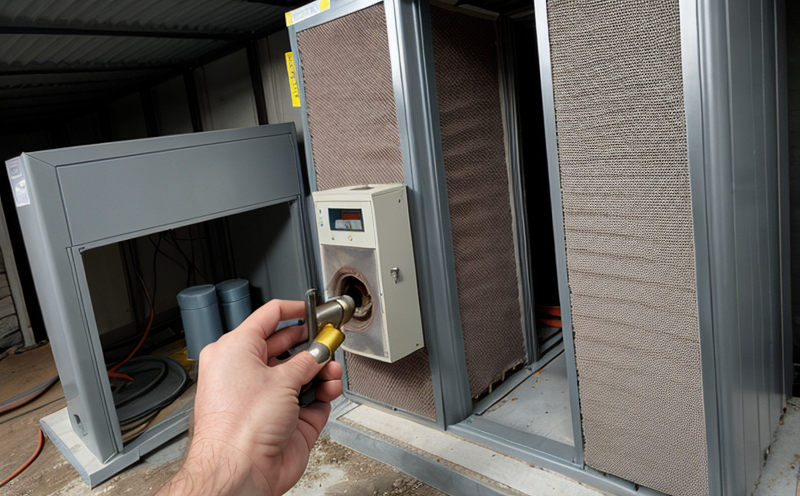Thermal insulation measurement of building textile composites
The thermal insulation properties of building textiles are critical factors in energy efficiency and sustainability. As architects and builders increasingly seek eco-friendly materials, the ability to measure and verify these properties is essential for compliance with international standards.
The process involves testing how effectively a composite material resists heat transfer from one side to another under controlled conditions. This measurement helps determine if the product meets the required thermal resistance values set by regulatory bodies such as ISO 10496-2 and ASTM E517.
Building textiles, which include insulation boards, panels, and membranes, are often composed of synthetic fibers like polyester or polyurethane foam. These materials can be combined with natural elements to enhance thermal performance while maintaining structural integrity. Properly insulating buildings reduces heating costs during winter months and cooling expenses in summer.
Testing methods typically involve placing the sample between two heat chambers, one heated and one cooled, then measuring temperature differences across it over time. This data allows engineers to calculate key metrics such as R-value (resistance value) or U-factor which indicates how well a material prevents heat flow.
In practice, this type of testing requires precise equipment capable of maintaining consistent temperatures within the chambers and accurately recording any changes in temperature throughout the duration of each trial. Compliance officers responsible for ensuring product quality must be aware that deviations from standard procedures could lead to inaccurate results or non-compliance issues.
For R&D teams working on developing new building textiles, understanding these measurements provides valuable insights into optimizing materials and designs for better thermal performance. By leveraging advanced analytical techniques like Fourier Transform Infrared Spectroscopy (FTIR), they can identify chemical compositions contributing most significantly to improved insulation properties.
This service plays a crucial role in supporting various sectors including construction, architecture, and environmental sustainability initiatives by providing reliable data that informs decision-making processes related to material selection and design optimization. It ensures products meet stringent regulatory requirements while also promoting sustainable practices within the industry.
Why It Matters
The importance of accurate thermal insulation measurements cannot be overstated, especially in today's environmentally conscious world where reducing energy consumption is a priority. By ensuring that building textiles perform optimally regarding their insulating capabilities, we contribute to lower carbon footprints and more efficient use of resources.
From an economic perspective, improving the thermal efficiency of buildings leads to substantial savings on utility bills for both residential and commercial properties. Additionally, meeting regulatory requirements helps avoid potential penalties or fines associated with non-compliance.
Moreover, this service supports innovation by allowing researchers and developers to experiment freely without worrying about compromising safety standards. This freedom fosters creativity and pushes boundaries in creating next-generation building textiles that are both functional and environmentally friendly.
Industry Applications
- Construction firms looking to enhance the energy efficiency of their projects through improved insulation solutions.
- Architects designing sustainable buildings that meet green building certification criteria such as LEED or BREEAM.
- R&D teams working on developing new composite materials with enhanced thermal performance characteristics.
- Manufacturers producing building textiles aiming to ensure their products comply with relevant international standards.
Competitive Advantage and Market Impact
- By offering accurate thermal insulation measurements, we help companies stay ahead of competitors by delivering superior quality products that meet or exceed industry expectations.
- This service enables firms to demonstrate their commitment to sustainability, thereby appealing to environmentally aware consumers who value eco-friendly choices.
- Through rigorous testing and validation processes, we contribute to establishing credibility within the market, fostering trust between stakeholders including end-users, suppliers, and regulatory bodies.





